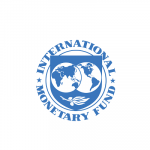World Bank’s Regional Vice President for the Middle East, North Africa, Afghanistan, and Pakistan (MENAAP), Ousmane Dione, made these remarks during a meeting with Prime Minister Shehbaz Sharif in Islamabad on Thursday. Dione praised the Pakistani government for navigating difficult economic conditions and initiating institutional reforms that are beginning to yield positive results.
The visit comes as Pakistan and the World Bank continue to build momentum around the newly developed Country Partnership Framework (CPF), which outlines a five-year roadmap for collaboration in priority development areas such as energy, human capital, climate resilience, and governance reforms.
Prime Minister Shehbaz Sharif extended his appreciation to World Bank President Ajay Banga and former Country Director for Pakistan Najy Benhassine for their contributions in advancing the CPF. He reaffirmed Pakistan’s commitment to deepening the relationship with the World Bank and leveraging its support to meet long-term development goals.
Read: Tax reforms crucial for Pakistan’s growth: World Bank
During the meeting, both sides expressed interest in expanding cooperation across key sectors of the economy. The World Bank delegation emphasized its willingness to continue supporting Pakistan’s reform agenda, improve service delivery, and promote inclusive economic development.
PM Shehbaz also acknowledged the World Bank’s assistance during the 2022 floods, when the institution provided swift financial support that helped the government initiate emergency relief and begin rehabilitation efforts. The prime minister further appreciated the World Bank’s principled stance on upholding international agreements, especially in the context of Pakistan’s position regarding India’s actions undermining the Indus Waters Treaty.
In a related engagement, the World Bank delegation visited the Benazir Income Support Programme (BISP) One Window Facilitation Center to assess the program’s operations. Chairperson Senator Rubina Khalid welcomed the delegation and highlighted BISP’s role in empowering marginalized women through targeted cash transfer programs, including the mandatory CNIC requirement that has helped integrate millions into Pakistan’s formal database.
The World Bank team commended BISP for its transition to digital payment systems, as well as its focus on nutrition and female education. They described the program as a model for delivering conditional and unconditional assistance to vulnerable populations in a transparent and effective manner. Ousmane Dione concluded his visit by expressing gratitude for the hospitality extended by the Pakistani government and reaffirmed the World Bank’s commitment to strengthening its partnership with Pakistan. He particularly lauded the prime minister’s leadership in restoring investor confidence and advancing policies aimed at inclusive and resilient economic growth







